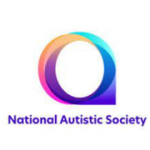Some of the recommended forms of treatment for depression include;
Talking therapies
Counselling: a therapy that involves talking to someone about your thoughts and feelings to try and help resolve things you may be struggling with. To help find a service that works for you, try using the Counselling Services Directory.
Cognitive behaviour therapy (CBT): a therapy that helps to identify and challenge negative thoughts and behaviour patterns to help change the way you think and feel about things. Some autistic people may find CBT challenging.
Mindfulness
Studies have shown mindfulness to be an effective treatment for depression. Mindfulness helps you to stop and focus on your thoughts, feelings, behaviours, and the things around you and accept them as they are without judgement.
Exercise
Regular exercise can have many positive benefits including releasing chemicals called endorphins in the brain. Endorphins trigger a positive feeling in the body which can help to improve your overall sense of wellbeing.
Self-care, sleep and diet
Taking time out daily for yourself to do something you enjoy and find relaxing like reading a book or drawing can help to improve your sense of wellbeing. Getting enough sleep and eating a balanced diet can also help to boost your mood.
Medication
Your GP may prescribe medication to help with symptoms; these are called Anti-depressants. Your GP will tell you how often you will need to take these and how long you will be on them for.
_____________________________________________________________________
If you or someone you know is going through depression, it is important to get help and support as early as possible.
Resources to help
Please note, these services are not autism specific. You may find it helpful to tell the person you speak to that you are autistic. Explain what they can do to help you, e.g. use clear language, speak slowly and give you time to process the information, give opportunities for you to ask questions to clarify your understanding.
If you have urgent mental health concerns, – for example thoughts about harming yourself – or suicide – you can call NHS 111 and press option 2.
You will be put through to a qualified call handler, who will be able to give you the advice and support you need.
This service is totally free and confidential and operates 24 hours a day, seven days a week
It is for all ages – so you can call this number if you are a parent or carer and need urgent mental health advice and support for a child or young person.
Alternatively, you can visit https://111.nhs.uk/ and follow the on screen instructions. This service is also staffed by the same qualified call handlers. It operates 24 hours a day, seven days a week and is free and confidential.
Please note however that this NHS 111 line is not an emergency service. Where
there is an immediate, serious and life-threatening emergency, you must call 999 or attend A and E.
Other options for non-urgent situations:
- Speak to your GP and tell them how you are feeling
- Talk to a friend, family member or someone you trust and tell them how you are feeling
- Speak to someone confidentially:
-
- Talk to the Samaritans on 116 123 or email them at jo@samaritans.org anytime of day, 24 hours a day
- Call Hopelineuk: 0800 068 4141 (operating 9am to 12 midnight)
- SHOUT The UK’s first 24/7 crisis text service, provides free, confidential, 24/7 text message support in the UK for anyone who is struggling to cope. This service is free on all major mobile networks, for anyone in crisis, anytime.Text SHOUT to 85258.
-
Remember: if there is a risk to life call 999 or go to any hospital A&E department






